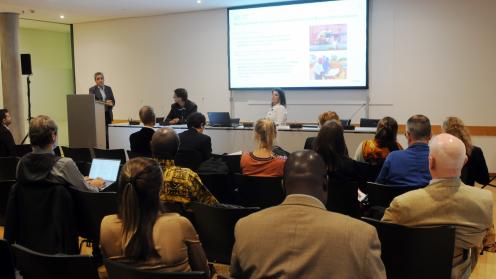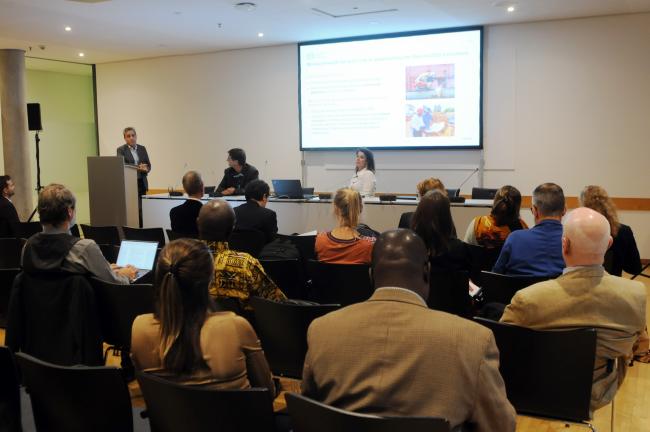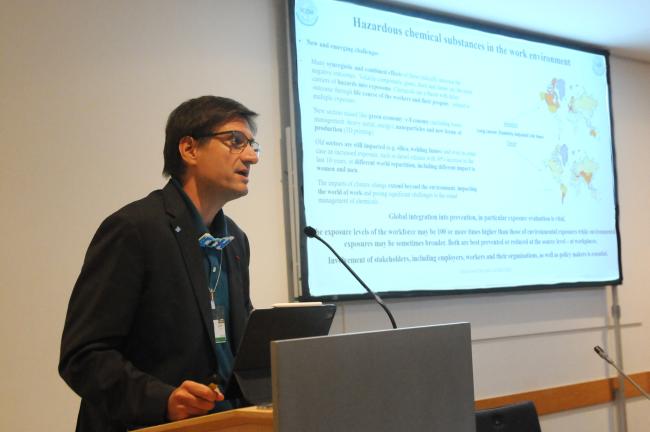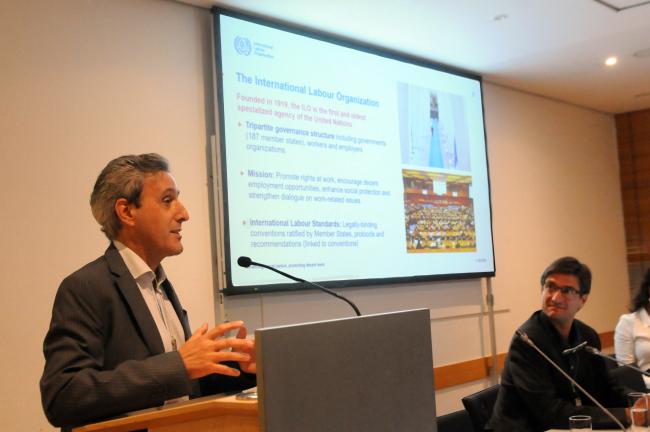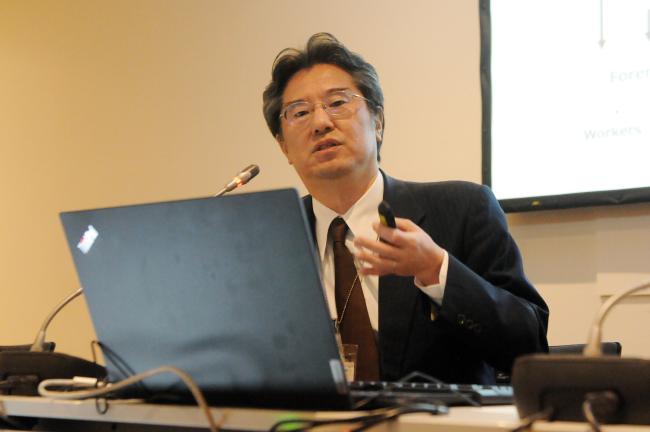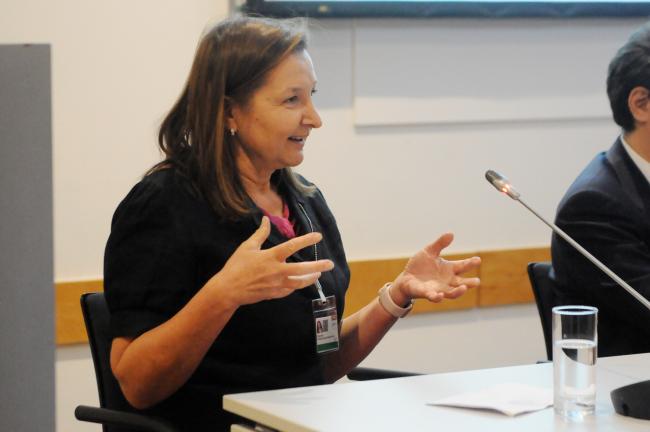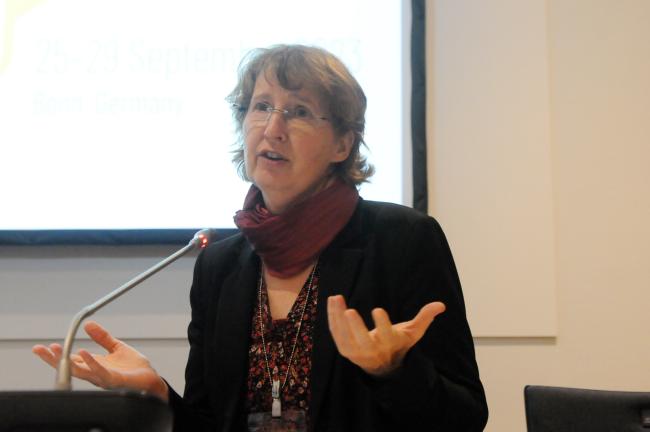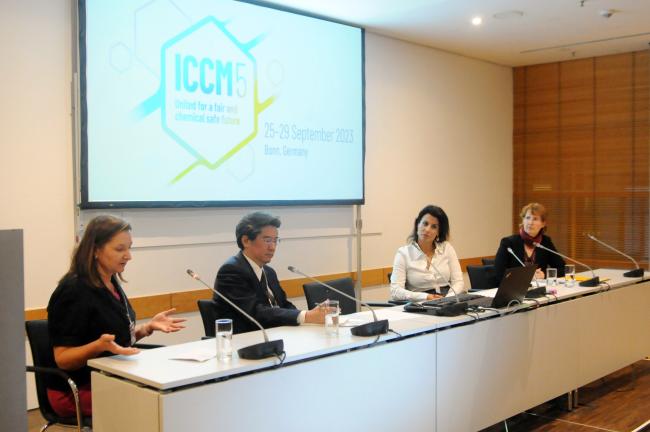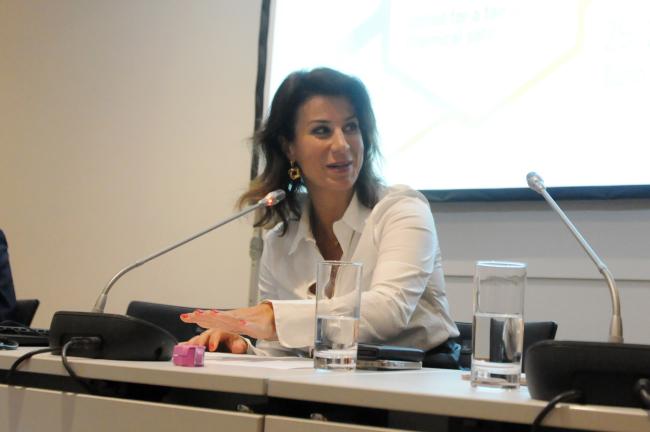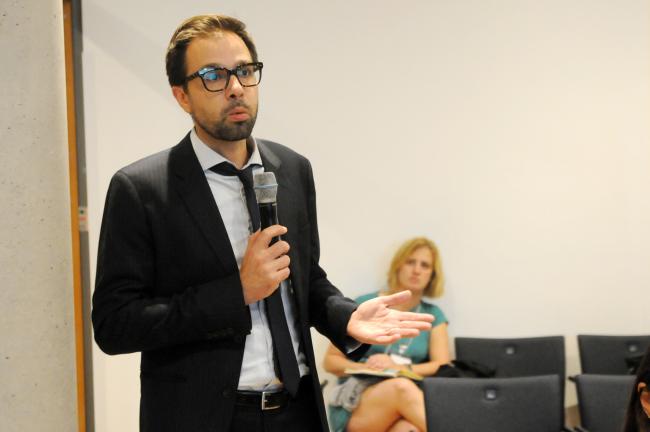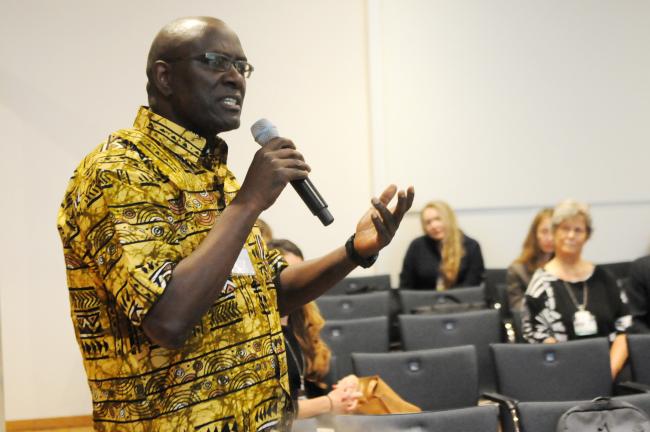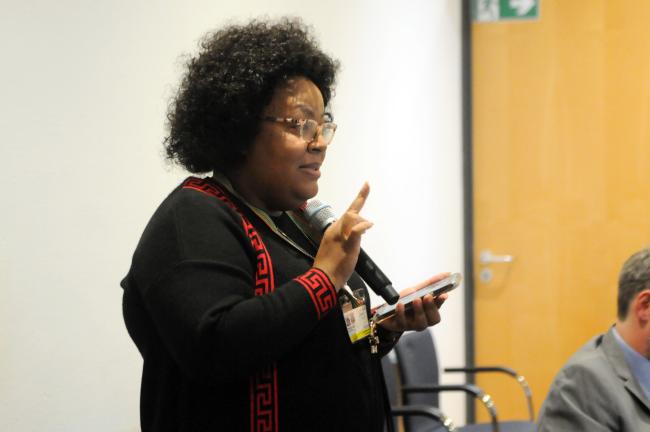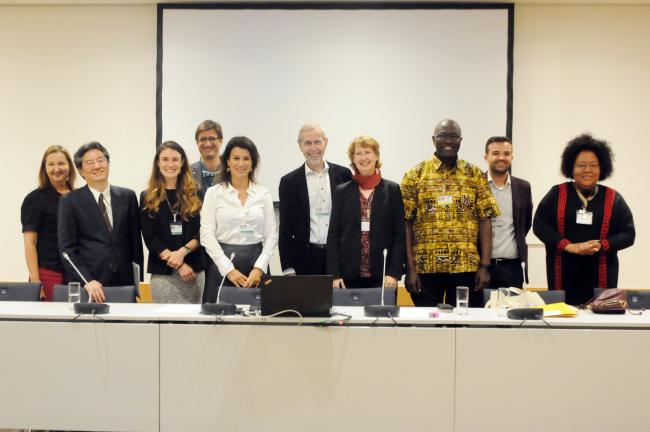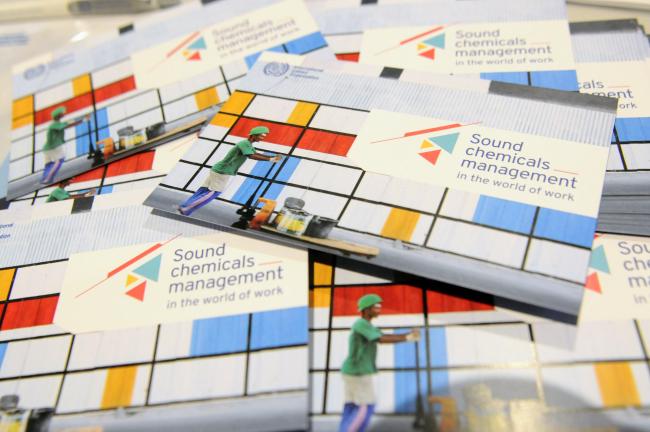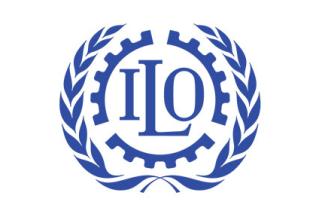About
One million workers die every year due to hazardous exposure to chemicals, while millions more face chronic illnesses. This ICCM5 side event explored this occupational health crisis, as regulatory risk assessment struggles to respond.
Workers face hazardous exposure to chemicals; in fact, one million workers die every year due to such exposure, with millions more facing chronic illnesses, including different types of cancer, respiratory diseases, and neurological conditions. This side event, moderated by Manal Azzi, International Labour Organization (ILO), focused on the occupational health crisis for workers, as regulatory risk assessment struggles to keep up with the expansion of the global chemical industry. In addition to the hazard of chronic chemical exposure, ongoing industrial accidents, despite advances in chemical management, remind everyone of the devastating impacts of hazardous exposure to chemicals for workers, surrounding communities, and the environment. These exposures disproportionately affect the most vulnerable, including migrant workers, Indigenous and tribal peoples, women, and children.
Alexis Descatha, International Commission on Occupational Health, noted that hazardous chemical substances threaten both human health and economic prosperity, resulting in negative economic consequences equal to 2.1% of annual global Gross Domestic Product (GDP). He noted that the main causes of death include malignant neoplasms, neuropsychiatric conditions, and cardiovascular, respiratory, and genitourinary diseases. He addressed hazardous chemical substances in the working environment, including new and emerging challenges due to synergistic and combined effects that increase negative outcomes. He emphasized that: global integration into prevention, particularly exposure evaluation, is vital; and exposure levels of the workforce may be more than 100 times higher than levels of environmental exposure and both are best prevented or reduced at the source level, namely workplaces. He said involvement of stakeholders, including employers, workers and their organizations, as well as policymakers, is essential for a sustainable future.
Joaquim Pintado Nunes, ILO, stressed that all workers’ deaths due to chemical exposure are preventable, and focused on the work of the ILO. He discussed international labor standards, which are legally-binding conventions, as well as related protocols and recommendations. He highlighted the decision in 2023 to include a safe and healthy working environment as a fundamental principle in the ILO Declaration on Fundamental Principles and Rights at Work. He further highlighted the decision by the International Labour Conference to designate the Occupational Safety and Health Convention, 1981 (No. 155) and the Promotional Framework for Occupational Safety and Health Convention, 2006 (No. 187) as fundamental Conventions. He urged participants to assist in increasing the number of ratifications to the Chemicals Convention 1990 (No. 170) and the Prevention of Major Industrial Accidents Convention, 1993 (no. 174), stressing they provide the basis for the sound management of chemicals. He concluded by drawing attention to technical publications and training materials and to the forthcoming ILO global strategy on occupational safety and health for 2024-2030.
Rory O’Neil, International Trade Union Confederation, said arguing that more information is needed and that “knowledge saves” is misleading. Using examples, including asbestos, he emphasized that health risks have been known since antiquity, stressing it is all about decisions rather than knowledge: what we use; how and when we use it; and who has the power to say no. He stressed that the labour constituency has to make the framework on chemicals “about us,” highlighting the trade union motto “nothing about us without us.” He noted efforts to put language in the framework that better reflects workers’ needs and stressed the need for information on procurement and on just transition, emphasizing that “a choice between poison and poverty is no choice at all.” Concluding, he reiterated that “information alone has never saved anyone,” underscoring the right to information and the right to act and stressing that occupational health and safety is, above all, a human rights issue.
Shojiro Yasui, Ministry of Health, Labour, and Welfare, Japan, shared national experiences from a novel approach to chemical hazard control under Japan’s Industrial Safety Act. The approach includes special regulations for a limited number of materials, a focus on non-regulated substances through special regulations, and obligations for all hazardous substances, including keeping exposure as low as reasonably achievable and below national concentration criteria. He presented a flow chart on a structured approach for chemical hazard control; discussed the establishment of a chemical hazard management system; and addressed the mechanism for compliance and improvement. He highlighted information on hazards as an important ingredient of the national chemical hazard control programme.
Eliisa Irpola, Chemical Industry Federation of Finland, provided the employers’ perspective on implementing the new framework for sound chemicals management. Stressing that the examples she uses come from a region subject to EU regulations and is, therefore, highly-regulated, she highlighted lessons learned, including safe operations through risk assessment processes starting with safety agencies and chemical classification and labelling. She noted that workers are crucial for providing data on safety of operations, which leads to relevant target-setting, planning, preventive measures, and monitoring through a continuous process. She emphasized the need to work together and to raise awareness at the national, regional, and international levels.
Christiane Rohleder, State Secretary, BMUV, stressed that more sustainable chemicals is a cross-sectoral challenge, requiring coordination between different actors, including different ministries, on aspects such as environment, labour, and consumer protection. She highlighted three important areas for coordinated actions: promotion of implementation of international conventions on chemicals; promotion of sustainable production and use of chemicals in line with the Sustainable Development Goals; and improving safety for workers that come into contact with or are exposed to chemicals through preventive measures, substitution of dangerous chemicals, protective equipment, relevant training, and ILO standards and guidelines. She provided examples of cross-ministerial synergies at the national level and emphasized that information, although insufficient, is still important.
In the ensuing discussion, participants shared perspectives on the relationship between human rights and hazardous substances as well as on challenges that developing countries face.
Organizers: ILO
Contact: Halshka Graczuk I graczuk@ilo.org
For more information: www.ilo.org/chemicals
All ENB photos are free to use with attribution. For this side event, please use: Photo by IISD/ENB | Diego Noguera.
To receive free coverage of global environmental events delivered to your inbox, subscribe to the ENB Update newsletter.
